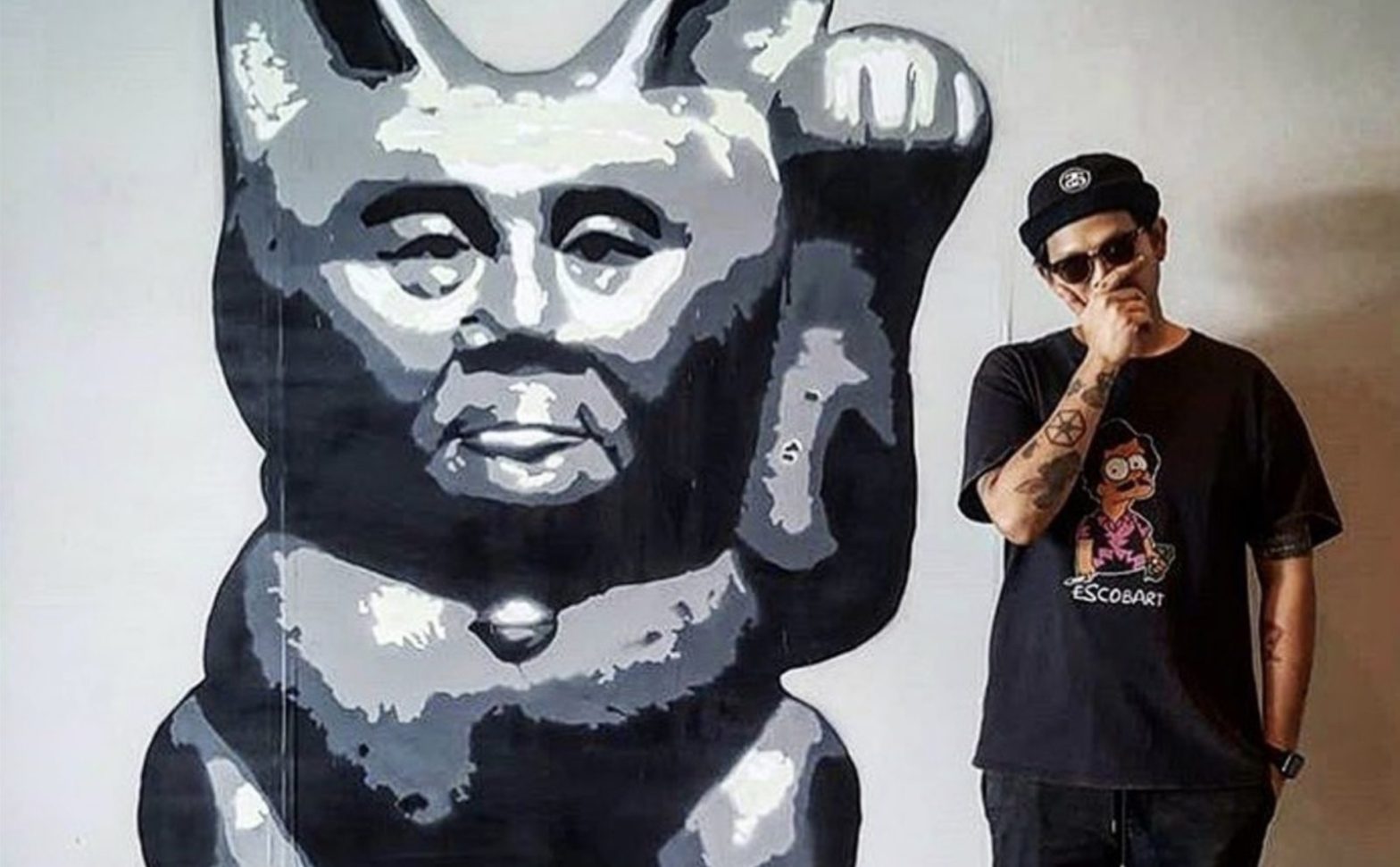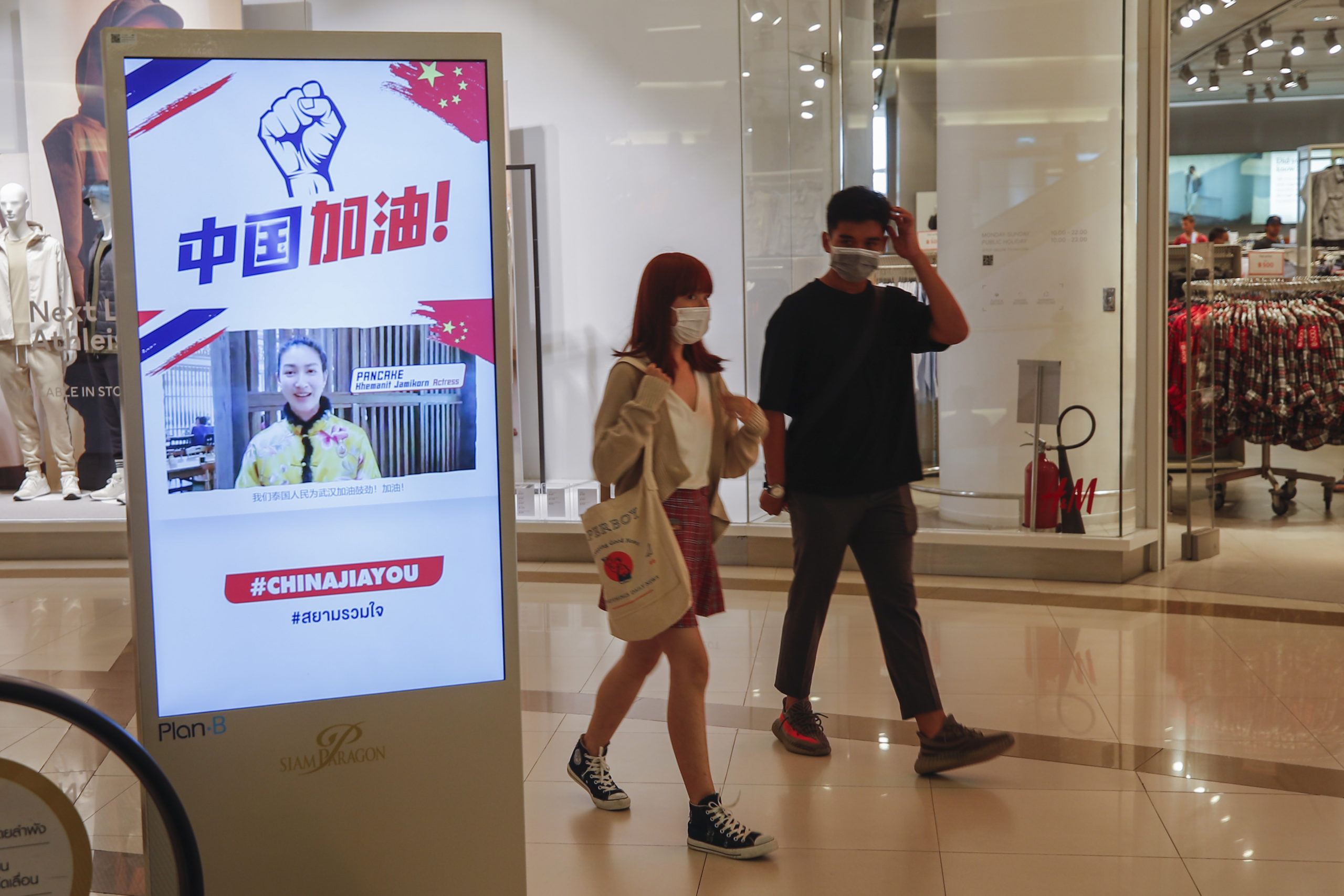Historically, there has been both animosity and brotherhood between China and Thailand. Famously quoted from a song written by Princess Maha Chakri Sirindhorn, the relationship has been characterised as that of “brothers, which will last thousands of years and beyond”.
Until recently, there has been little to doubt that assessment of Sino-Thai relations, as the relationship has only strengthened since the creation of a closer bond – one based on security cooperation against Vietnam in the 1970s and 80s, relief over Beijing’s decision not to devalue the baht during the 1997 Asian Financial Crisis, relative silence during Thailand’s May 2014 coup d’état, and increased Thai dependence on Chinese tourists.
Yet because of recent developments, namely the authoritarian crackdown and passage of a draconian national security law in Hong Kong, recent pressures on Taiwan, and relative silence amid the military coup in Myanmar, it is the image of China among the Thai public, rather than its foreign policy with Thailand’s military-backed government, that has come under strain.
Recent years have seen a growing schism between Thailand’s warm foreign relations with Beijing and rising public anger at the government’s seemingly cozy relationship. The formation of the Milk Tea Alliance this past year has shone a light on a younger generation of Thai’s resistance to Chinese influence in the kingdom, rejecting the notion of a strong cultural bond between the two countries. It is this rising anti-Chinese sentiment that should concern Thai and Chinese policymakers going forward, as a temporary online war of words from netizens has the potential to spill over into something much worse.
Thais began to regard the influx of Chinese tourists as a negative, with some earning the same “ugly” moniker that had previously been associated with Americans
Interactions with China in Thailand are not always smooth. Before the onset of Covid-19, Chinese tourists became the lifeblood of the Thai tourism industry, accounting for more than 25% of all visitors to the kingdom. Yet Thais began to regard the influx of Chinese tourists as a negative, with some earning the same “ugly” moniker that had previously been associated with Americans. The Thai government has struggled to find a balance between public anger at the behaviour of Chinese tourists and its growing dependence on the revenue they bring in.
Compounding the problem was “zero-dollar” tourism, where Chinese travel agencies would offer cheap tours, with meals and accommodation, offering tourists the luxury of knowing their needs would be taken care of and limiting spending in the wider community. In 2016, the Thai government banned zero-dollar tourism, shutting down several companies and arresting some for money laundering and illegal tours – all with limited success.
Hostility only grew at the onset of the pandemic, as a wave of anti-Chinese sentiment rippled across Southeast Asia and beyond during the Covid-19 outbreak in early January last year. In February last year, Thai graffiti artist Headache Stencil wrote racist rants against Chinese tourists and reports of anti-Chinese sentiment reached as far north as Chiang Mai. As the coronavirus continued to spread, xenophobic nationalism proliferated online.

Foreign policy stumbles and increasing interdependence have also amplified Thai animosities toward Beijing. In 2019 for example, concerns arose about a Belt and Road Initiative (BRI) high-speed rail project that would connect Nong Khai with Vientiane, Laos and Yunnan Province in southwestern China. Thai newspaper editorials grumbled over the possibilities that this could be another Chinese “debt trap”, with much of the financing in the second phase of the project coming from international loans, of which China stands to benefit the most.
Little in the way of transparency and accountability were shown by the government, which kept most of the details of the project hidden from the Thai public. The consequences of this lack of transparency are reflected in the statistics, with a poll taken in January 2020 showing that 60% of Southeast Asian respondents reported that they distrusted China, and 40% thought it intended to turn the region into its sphere of influence
While the early days of the Milk Tea Alliance were petty bouts of nationalism and online trolling, the broader movement has become symbolic of some of the frustrations Thais have about China’s formidable presence in the region
But it is the growing Milk Tea Alliance that has increased scrutiny of China within Thailand.
The Milk Tea Alliance’s early origins came from an online squabble between fans of Vachirawit Chivaaree – or Bright from the Thai drama 2gether: The Series – and Chinese netizens when the actor retweeted photos of skylines in four “countries”, one of which was Hong Kong. When the Chinese responded with tweets insulting Thailand’s king and prime minister, Thai fans were unimpressed.
It’s a largely leaderless online mechanism that aims to harness international criticism at Chinese authoritarianism in East and Southeast Asia, and it has become a prominent voice in Thailand’s ongoing pro-democracy protests. There is the sense among members of the Alliance – Thailand, Hong Kong, Taiwan, and now Myanmar – that each have become victims of Beijing-backed authoritarian regimes or policies, and by proxy, a victim of China itself.
While the early days of the Milk Tea Alliance were petty bouts of nationalism and online trolling, the broader movement has become symbolic of some of the frustrations Thais – and now people across Southeast Asia, including Myanmar – have about China’s formidable presence in the region.
The evidence of Beijing’s influence is difficult to ignore. China is Thailand’s largest trading partner, according to the World Bank. The same is true for Myanmar and Cambodia. Even Thailand’s economic growth models, which aim to elevate the country from middle-income status to fully developed by 2037 are contingent upon connections to Beijing, which Prayut hopes will provide a substantial portion of the foreign direct investment required to fund the Eastern Economic Corridor.
In other words, Thailand’s future is intertwined with that of China.

But the Milk Tea Alliance is somewhat separated from the realities of economic interdependence. Activists in Asia have increasingly regarded Beijing, like many in the West, as a lingering threat to democratisation and the well-being of existing democratic institutions, as evidenced by the ongoing political, economic, and social integration of Hong Kong into mainland China.
China’s relative silence following the February 1 military coup d’état in Myanmar has also already set off alarms among Milk Tea activists. China immediately blocked a resolution in the UN Security Council condemning the coup, warning that international pressure or sanctions would only worsen matters in Myanmar. The lack of support or condemnation only reinforces the image of China as recalcitrant in the face of bitter opposition to an unpopular coup.
It is the image of China which is something that both the Thai and Chinese governments will have to contend with going forward. If the Thai younger generation – much more technologically savvy and politically progressive than previous generations – holds little regard for sentiments of the past, it serves as a stark reminder of a cloudier future.
At some point in time, Thailand’s public anger will catch up to its foreign relations with China. The signs of this are already showing, when an angry Thai public got the better of an unpopular move by the Thai government to buy two $724 million Chinese submarines amidst the pandemic in August.
This public anger towards China could spillover into more persistent development challenges, such as Thailand’s vulnerability to drought – and its precarious position on the lower Mekong and subject to the political whims of China. Countries bordering the lower Mekong River are at the mercy of Chinese controlled upper Mekong dams – but Thailand, Cambodia, and Lao PDR rarely raise objections due to their cozy relations with Beijing.
But Thailand has already begun to take notice of growing public discontent with Chinese influence on the issue, and in February 2020, the Thai government ended a Chinese-led project that would improve navigation in a section of the Mekong after local residents and conservationists loudly objected over potential environmental impacts.
All this is to show that Thailand’s relationship with China – mainly the image of Chinese influence within the kingdom – hangs delicately in the balance.
Mark S. Cogan is an Associate Professor of Peace and Conflict Studies at Kansai Gaidai University in Osaka, Japan. He is a former communications specialist with the United Nations in Southeast Asia, Sub-Saharan Africa, and the Middle East.


